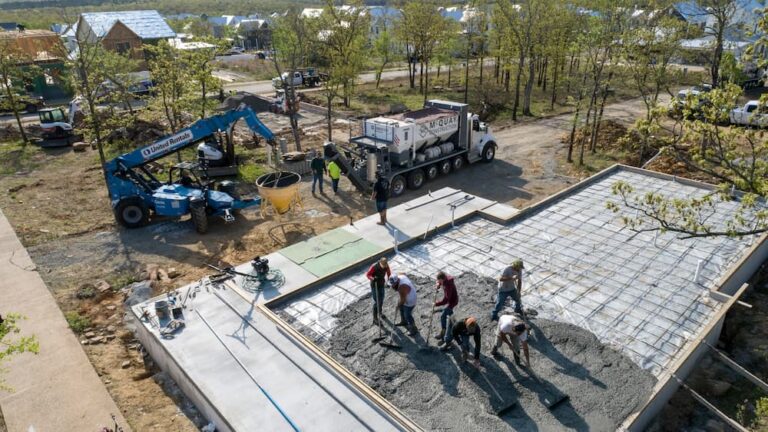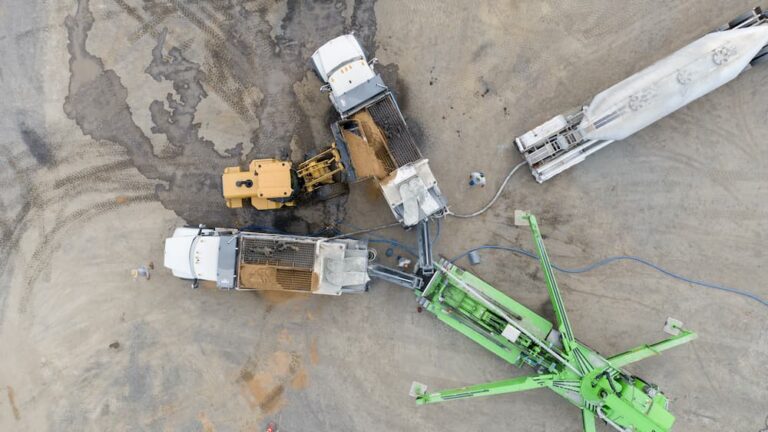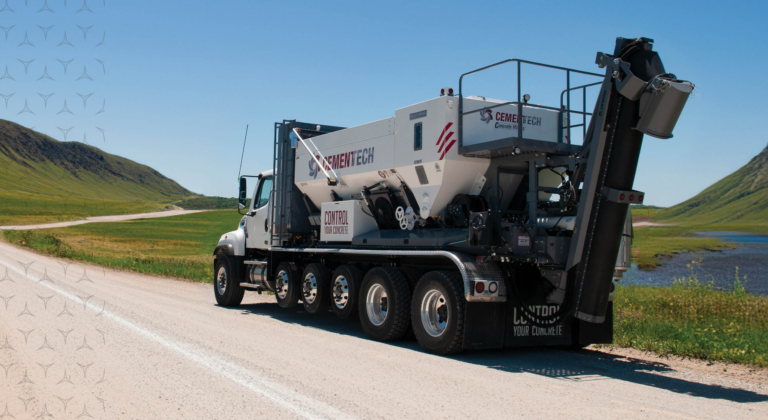Frequently Asked Questions
Get clear answers about how volumetric mixers work, their benefits, and how they save time, reduce waste, and give you more control on the job site.
What is Volumetric Concrete Technology?
Volumetric concrete technology mixes concrete by volume, not weight. Instead of mixing all at once, materials are combined on-site as needed. This ensures every batch is fresh, reducing waste and improving quality.
How Do Traditional Batch Plants Compare to Volumetric Mixers?
- Batch Plants: Fixed location, mix everything together, then deliver.
- Volumetric Mixers: Mix on-demand at the job site, giving you control to adjust or stop as needed. No waiting for concrete trucks to arrive.
What is Volumetric Mixer Calibration?
Calibration ensures accurate amounts of materials (like sand, stone, and cement) are used. It’s done yearly, with each material being measured separately to ensure precision.
What Are the Advantages of Volumetric Mixers Over Traditional Methods?
- Better Quality: Mix on-site for fresher concrete.
- No Waste: Only mix what you need—no leftovers.
- Flexible Mixes: Change mix designs on the spot without waiting.
- Less Downtime: Crews can keep working without waiting for new deliveries.
- Save Money: Avoid extra delivery fees for after-hours or weekend work.
- Eco-Friendly: Less water and fuel used overall.
- Business Versatility: Customize mixers to fit your needs.
- Increased Mobility: Reach tough locations other trucks can’t.
What Kind of Projects Use Volumetric Mixers?
These mixers offer flexibility and efficiency for a variety of construction projects:
- Utility work, such as sewer and water
- Road, street, and/or sidewalk repair
- Construction in remote locations, such as new housing developments
- Projects using fast setting concrete, such as airport runways or highway repairs; and
- Large pours with materials available onsite, such as commercial developments.
How Can Volumetric Concrete Production Benefit My Business?
Using volumetric mixers gives you control of your concrete:
- Producing what the job needs—down to a quarter yard.
- Your costs stay the same whether you’re pouring 1 yard or 10.
- Easily adjust the mix design on-site whenever needed, saving time and money.
Volumetric mixing eliminates common pain points:
- Ordering more concrete than you need and paying for it (like needing 2 yards but being charged for 5).
- Higher costs per yard for small loads.
- Managing schedules to get multiple trucks for different concrete mixes.
Are There Certifications for Volumetric Concrete?
Yes. ASTM C94 is the standard for weighing each ingredient, while ASTM C685 focuses on volume. Any equipment that meets either standard can produce quality concrete. However, the quality of volumetric concrete is governed by ASTM C685 and AASHTO M241, which includes extra regulations.
Does a Volumetric Mixer Produce Better Quality Concrete Than a Drum Mixer?
Tests have shown that volumetric mixers can produce concrete with marginally higher strength than traditional drum mixers, resulting in better performance for your projects. Tests focused on air content, slump, and unit weight according to ASTM standards.
We do a lot of streetscapes, and the ramps, curbs, and sidewalks all need different mixes. We used to need three short loads, but now we can change the mix three times in one truck and pour the entire job.




